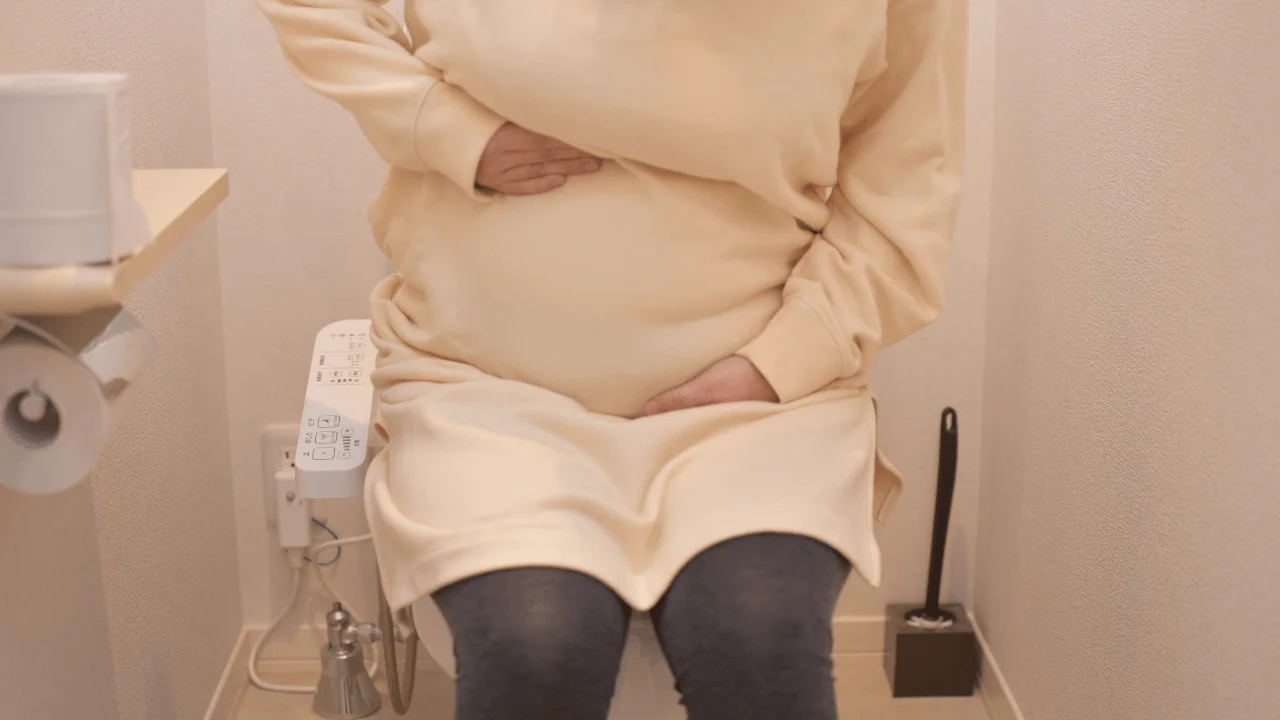
Postpartum constipation is common, and can cause discomfort and pain for a few days after delivery. The issue has a number of possible causes, including new sleep schedules, dehydration, less overall movement, and the use of pain medication. There are some treatment options for postpartum constipation that can help, such as upping the amount of water you drink, taking stool softeners, and including more high-fiber foods in your diet.
IN THIS ARTICLE
- What is postpartum constipation?
- What causes constipation after a c-section or vaginal birth?
- What are the treatment options for postpartum constipation?
- Is there anything I can do to prevent constipation after birth?
- Signs that you need to call your doctor about postpartum constipation
What is postpartum constipation?
Even if you never had a problem with constipation during pregnancy, you may after delivery. It’s common to take a few days to start having regular bowel movements again.
In addition to not having bowel movements, you may also experience discomfort, straining, pain, and hard stools. These type of issues tend to resolve once your body adjusts back to a more regular schedule.
What causes constipation after a c-section or vaginal birth?
If you had a long labor without eating anything, or if you had a bowel movement during labor, it may be a day or two until you’re back to normal because there simply isn’t anything in your intestines. And if you had a c-section, it can take three or four days for your bowels to start functioning as usual.
Continuing to have problems moving your bowels after that could be from:
- Taking systemic narcotics (such as morphine, Vicodin, or Percocet) during labor or for postpartum pain because these can slow down your digestive system.
- Having a sore perineum because of hemorrhoids, an episiotomy, or a tear. This may lead to constipation if you’re afraid of more pain or of putting strain on your stitches causes you to hold in your feces.
- Taking iron supplements (which may be in your prenatal vitamin).
- Changed sleep patterns and fatigue, which are normal with a new baby.
- Increased stress and anxiety, another common aspect to postpartum life as you’re adjusting.
- Dehydration and diet changes, particularly if you’re not drinking enough water or you’re eating more low-fiber foods.
- Lower activity levels, as you’re resting after delivery and generally getting less exercise.
What are the treatment options for postpartum constipation?
Here are some tips for preventing and easing constipation:
- Don’t wait to go to the bathroom when you feel the urge to move your bowels, even though it might be uncomfortable the first few times. Waiting makes your stool drier and harder to pass.
- Eat high-fiber foods such as whole grain cereals and breads, brown rice, and beans as well as fresh fruits and vegetables every day.
- Carry a water bottle and drink plenty of water. A daily glass of fruit juice, especially prune juice, can also be helpful. Some people find that drinking warm liquid soon after waking up helps get things moving. Coffee or tea can also get your bowels moving.
- Go for a walk. Walking may be painful at first, especially if you’re recovering from a c-section or an episiotomy, but even a short trip around the block can get your sluggish bowels into gear.
- Ask your healthcare provider whether you should take a stool softener or laxative, sold over the counter at any drugstore. (Stool softeners enhance water absorption in the stool, while laxatives stimulate the stool to pass.) You’ll need to start taking a stool softener right away if you have a tear that extends into or through your sphincter. Stool softeners are also helpful if you’re suffering from hemorrhoids or taking high-dose iron supplements for anemia or narcotics for pain relief. You’ll start taking a stool softener right away if you have a tear that extends into or through your sphincter, or if you had a c-section.
If things don’t improve in a few days, talk with your provider. They may have additional recommendations for you to try, or they may need to do a manual disimpaction, which is a procedure to break up the hardened stool with a gloved and lubricated finger.
Is there anything I can do to prevent constipation after birth?
There are some strategies you can try before delivery that may lower your chances of becoming constipated. Those include:
- Drinking at least 8 to 10 glasses of water every day – or drinking enough to keep your urine clear-colored; dark urine is often a sign of dehydration.
- Getting regular movement and activity; research shows that daily exercise can help with constipation during pregnancy, and may also make you less likely to have the issue postpartum. When you’re recovering, you’ll want to check in with your healthcare provider before you get moving, to discuss what’s safe and when you can start.
- Eat high-fiber foods, especially fruits, vegetables, and whole grains
Signs that you need to call your doctor about postpartum constipation
You don’t usually need to talk to your doctor about the issue, but occasionally it can be a symptom of another problem. Call your provider immediately if you have mucus or blood in your stool, or if you have severe constipation that is accompanied by abdominal pain and alternates with diarrhea.
Also, straining during a bowel movement or passing a hard stool can cause or worsen hemorrhoids. Hemorrhoids may shrink quickly, or they may persist for months postpartum. Sometimes hemorrhoid symptoms may wax and wane for years. Although hemorrhoids can be extremely uncomfortable, they rarely lead to serious problems.
Even if your constipation doesn’t seem serious, don’t hesitate to discuss it with your provider if it persists.
Read more about


Add a Comment